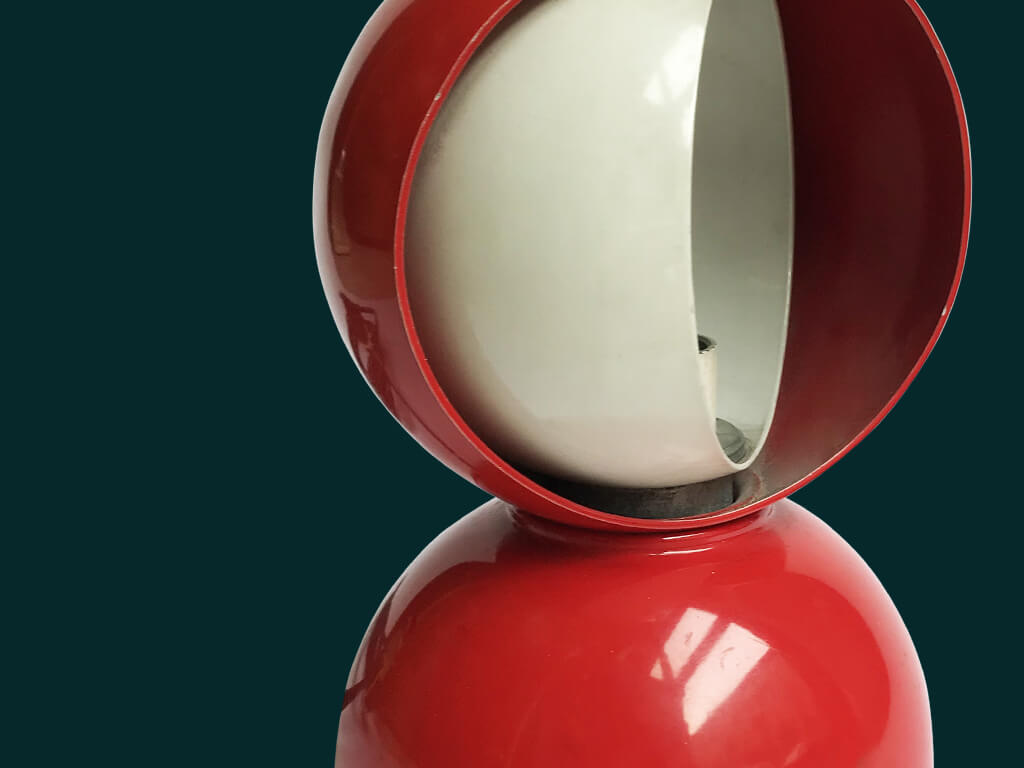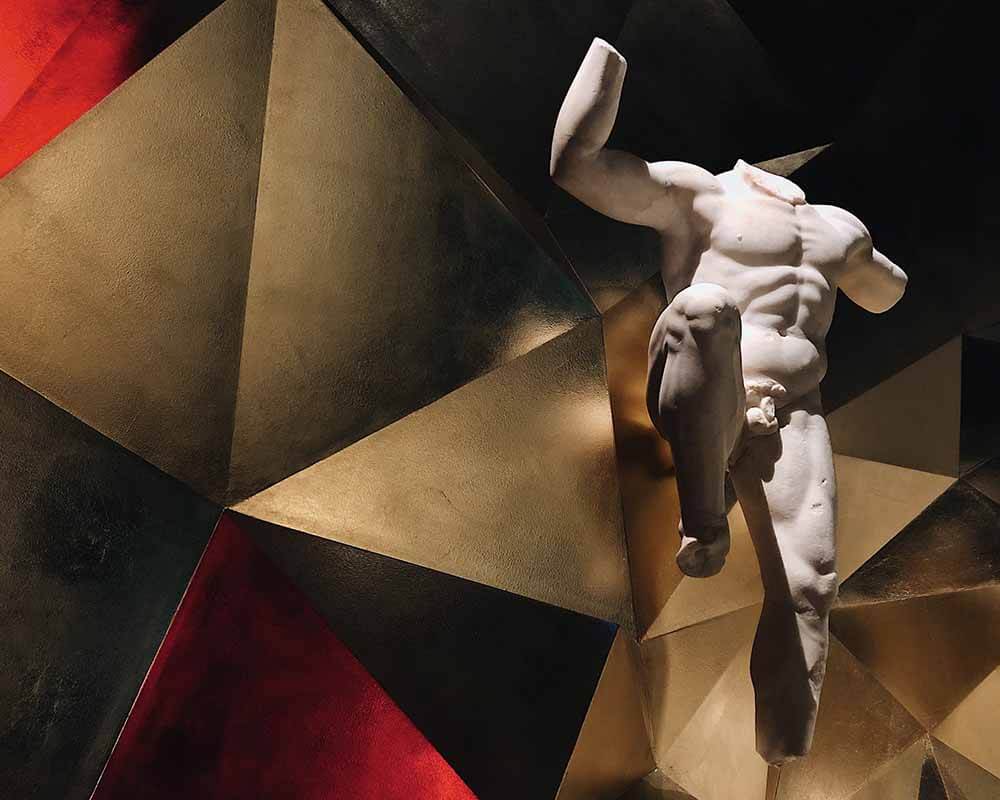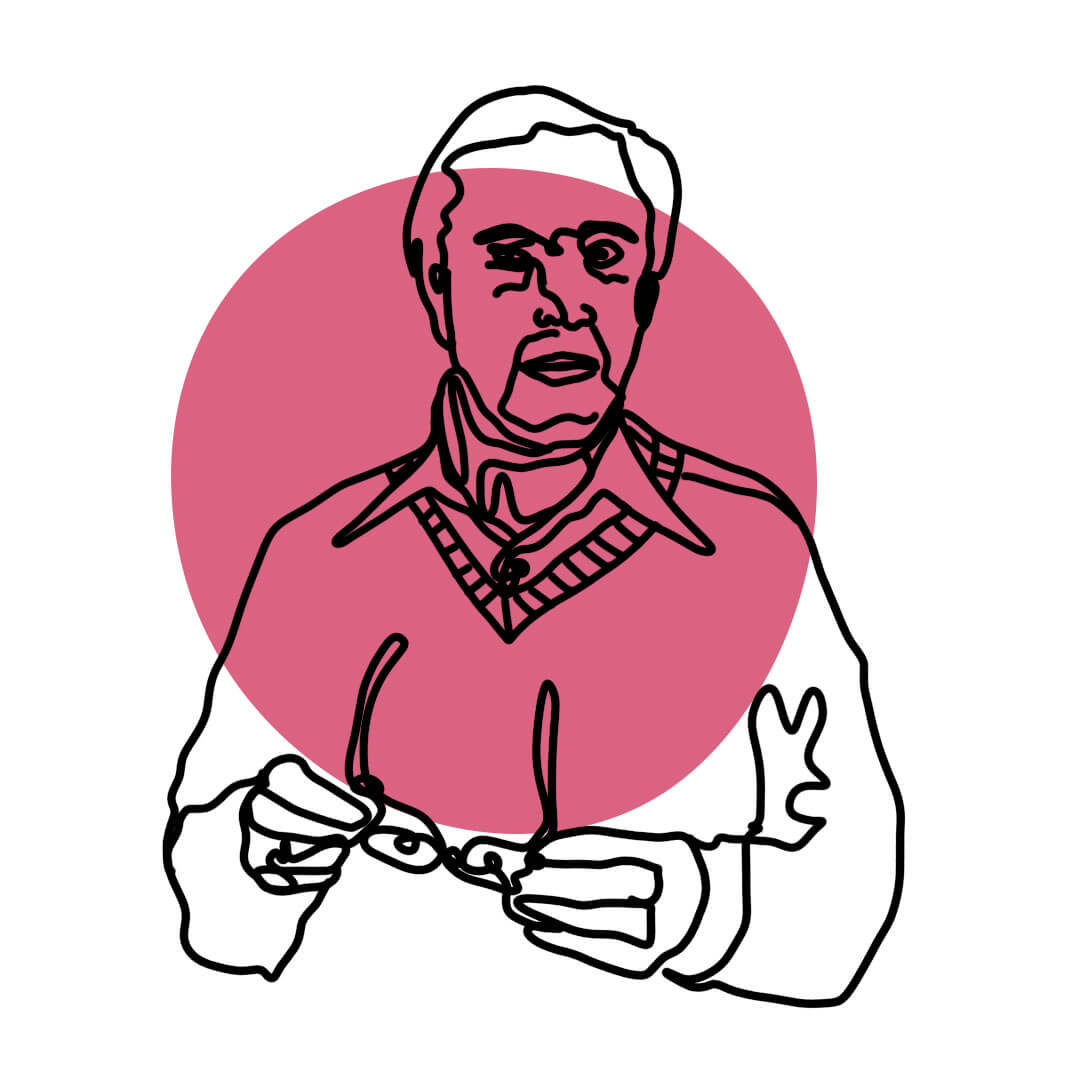Known as the founder of the Habitat store chain, The Conran Shop and the DesignMuseum in London, Terence Conran (1931-2020) was a cultural phenomenon even more than a designer. Pioneer of the concept of "democratization" of design, we want to remember him in one of the situations he loved most: staying at Burton Court, his home in Berkshire, with an HB pencil in one hand, the inevitable cigar in the other, busy on designing and sunk into his favorite chair, the Karuselli, a Space Age icon in brown leather and white fiber glass designed in 1964 by Finnish designer Yrjö Kukkapuro.
«The designer's job is to imagine the world not as it is, but as it should be», often repeated Conran, who had applied a plinth to his Karuselli chair to make it more suitable for his back pain issues: one of the many tricks Conran, who passed away last September at the age of 88, featured in his creations in order to improve, through the design of functional, always elegant, unpretentious furniture, the quality of daily life. Revolutionary for England was his creation of flat-pack furniture, for this reason very easy to send to buyers' homes, a quality inspired by scandinavian design that already distinguished his very first production, dating back to the 50s, when Conran worked at his first studio in Notting Hill.
Along with design, the other passion that accompanied him throughout his life was that for good food, which led him to want to be a restaurateur and consequently an entrepreneur on several sides. «What is life after all? Good food, good wines, good cigars and comfy sofas. I am very proud to have my signature in all this», said once the designer who, in 1971 opened his very famous Neal Street Restaurant in the heart of Covent Garden, with a menu designed by David Hockney and coffee served from the very first espresso machines.
Conran's entrepreneurial intuition, with the consequent ability to create a lifestyle, a global taste, in which the best of design, food and art were mixed to create welcoming atmospheres, rode the spirit of post-war England, with its economic recovery and the new habits that entered the English houses. In 1964 Habitat, the first English concept store dedicated to the world of the home, opened in London in Chelsea on Fulham Road, promoting not only the furniture signed by Conran, but distributing that of the most renowned design brands. These were the years of the Swinging London, of the Mary Quaint's miniskirts, and Habitat furniture reflected a relaxed and informal spirit, contributing to the concept of lifestyle and taste for eclecticism in décor.
Habitat was followed in 1973 by his "brother" The Conran Shop which, since 1987 has totally incorporated Habitat and has been living in the Michelin building (Bibendum) ever since, on the corner of Fulham Road and Sloane Avenue. With offices all over the world, from Paris to China, The Conran Shop continues to collaborate with the most prestigious design brands such as Knoll, Vitra and Fritz Hansen, giving life to limited editions furniture and continuing to product the re-editions of its most iconic pieces.
Flicking through the pages of 1974 The House Book, one of the many books on furniture written by Terence Conran (yes, he was also a prolific author!), we extrapolated our favorites among his vintage pieces for Habitat — the Concorde napkin holder for the table, the Cone wicker chair for the living room or the garden, the Maclamp lamp for the working desk, the modular bookcases for the study and the teak sofas — along with some advices on how to rethink décor: «Empty the room» he writes; «while it's empty, consider the quality of the light and how to improve it. Then bring back into the room only the furniture you truly love, or the really practical things» And also: «If there is one thing our homes should convey, it should be the sense of who we are, and how we got here: a sense of connection, balanced by a sense of direction and progress».
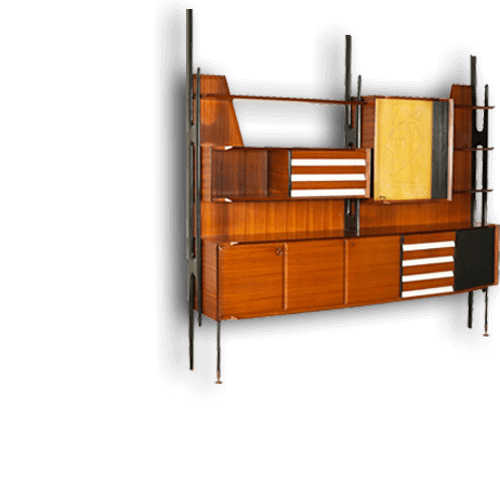
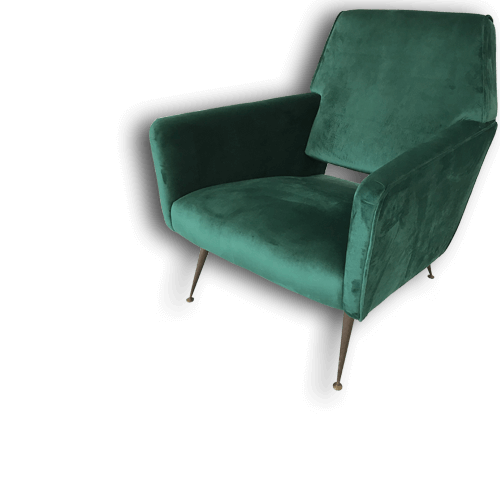



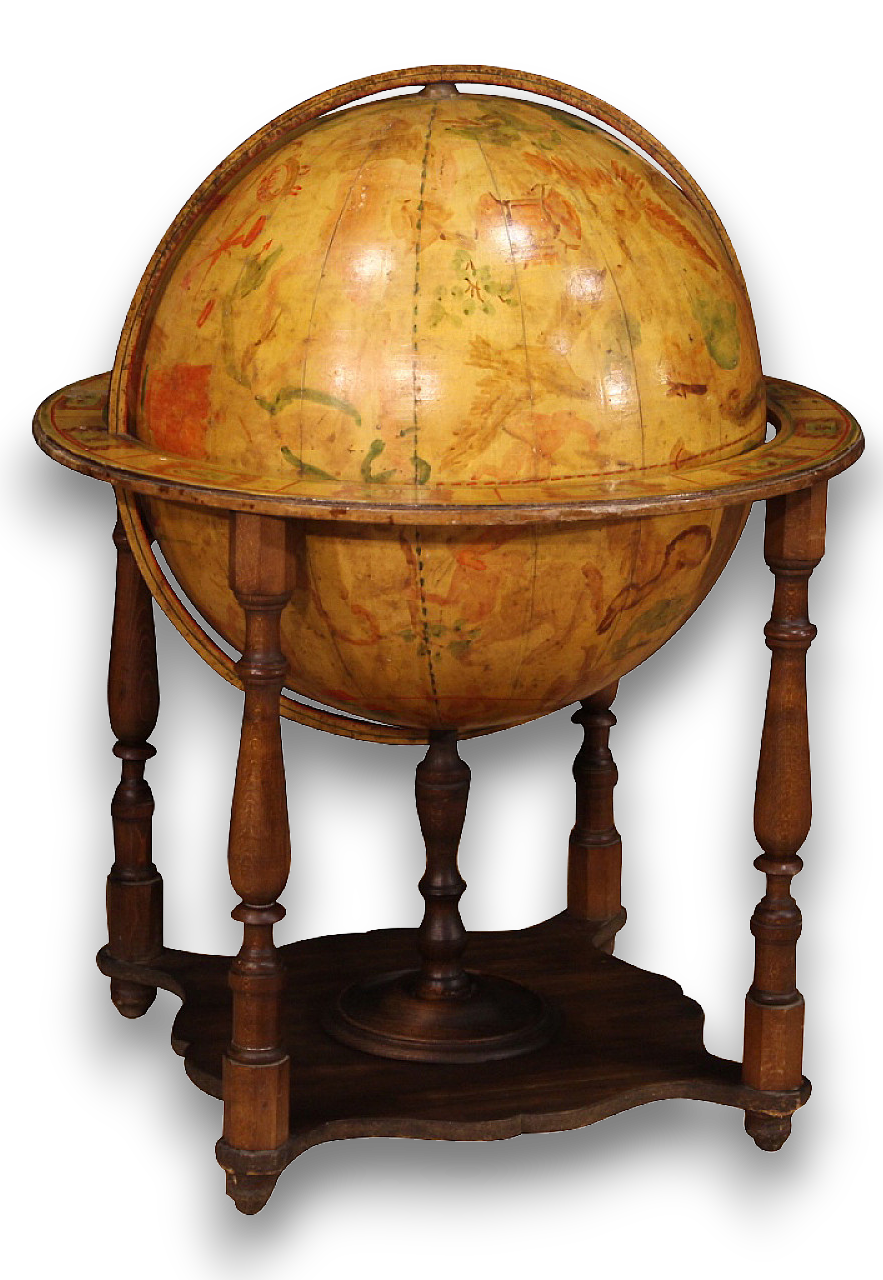
.png)

